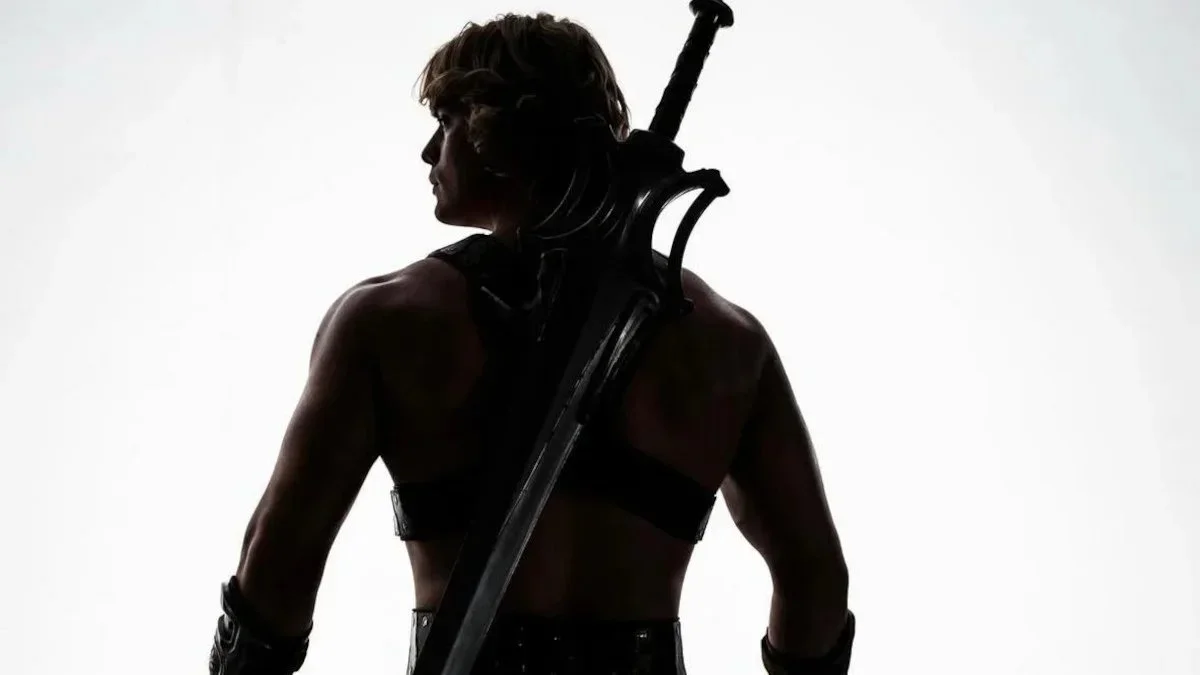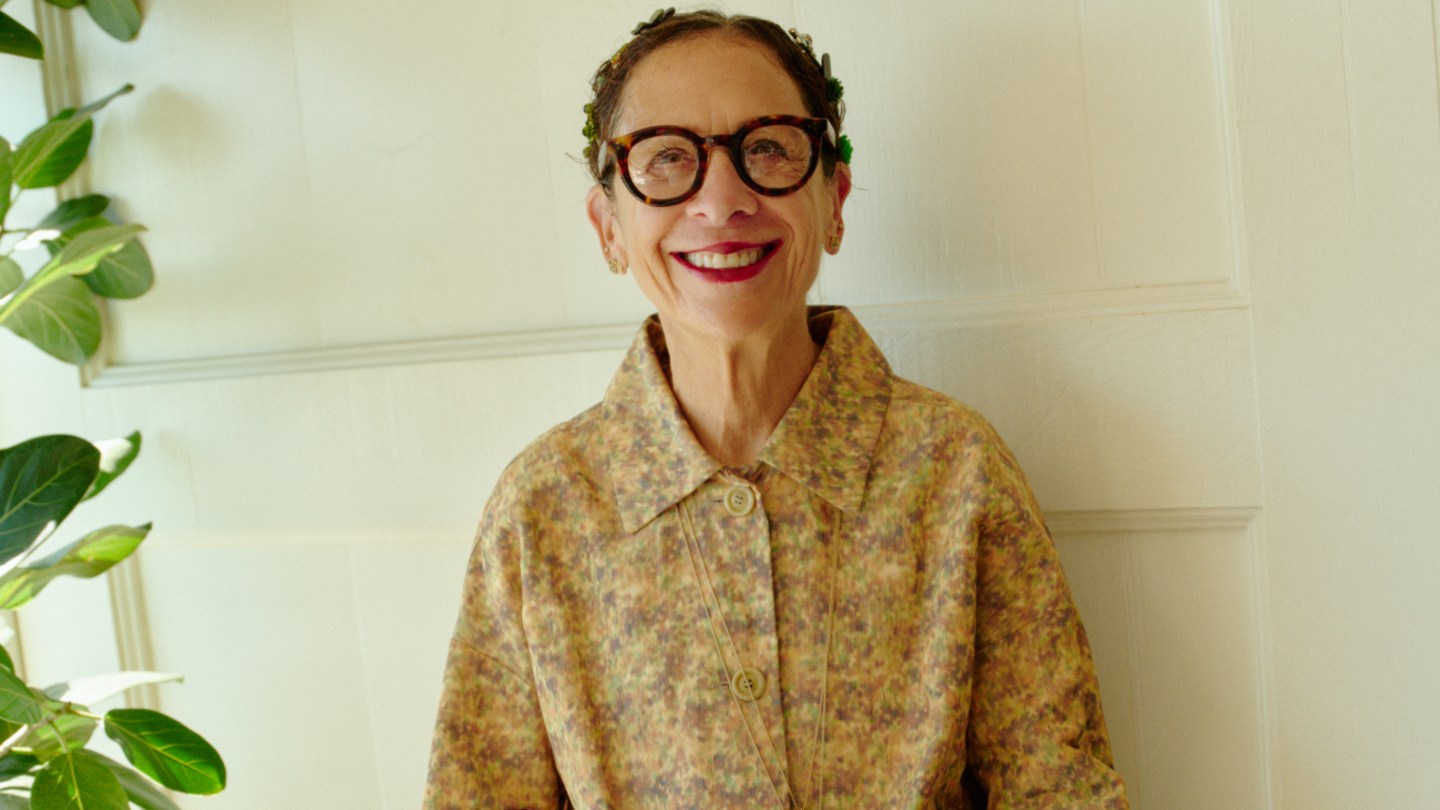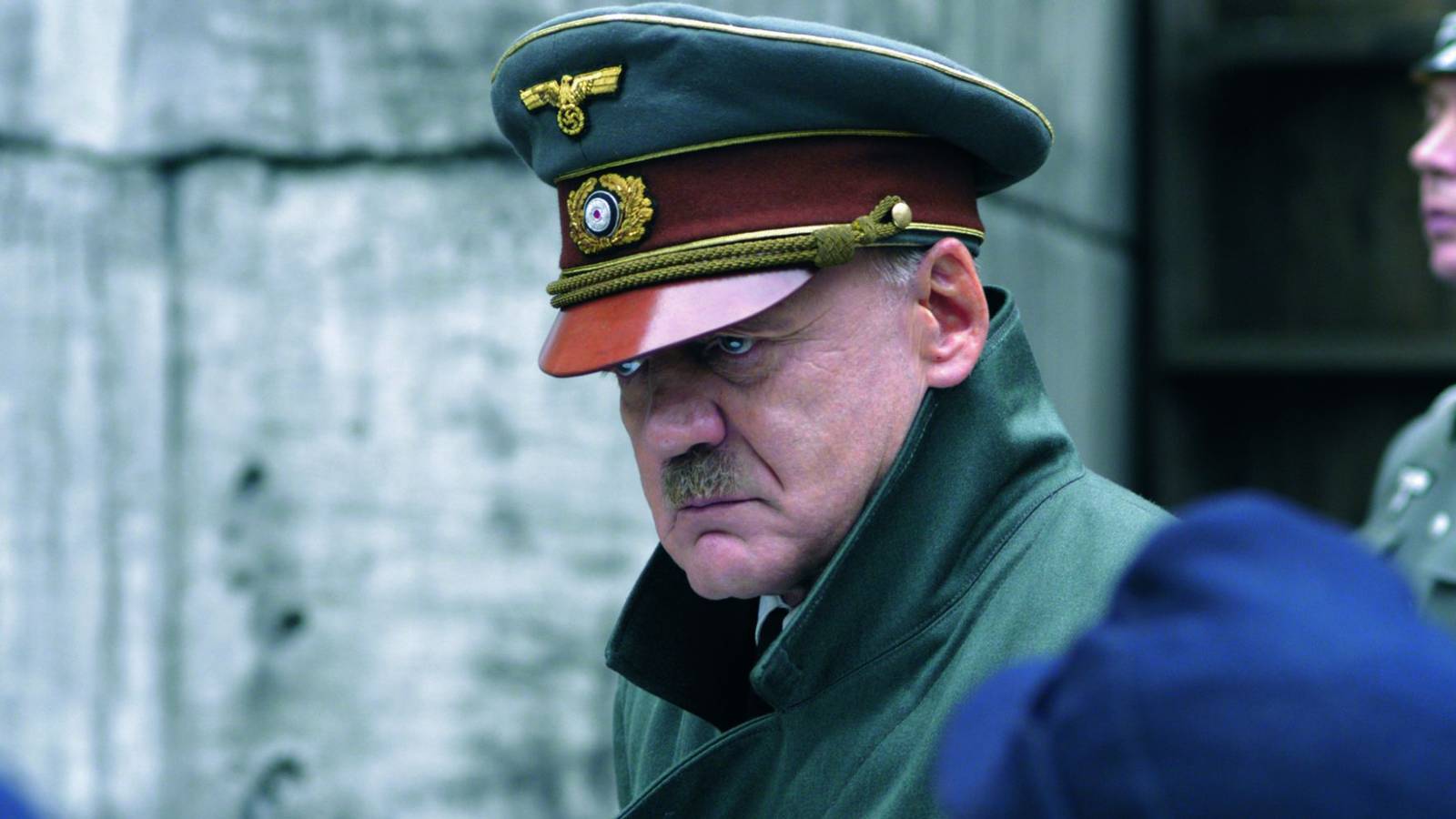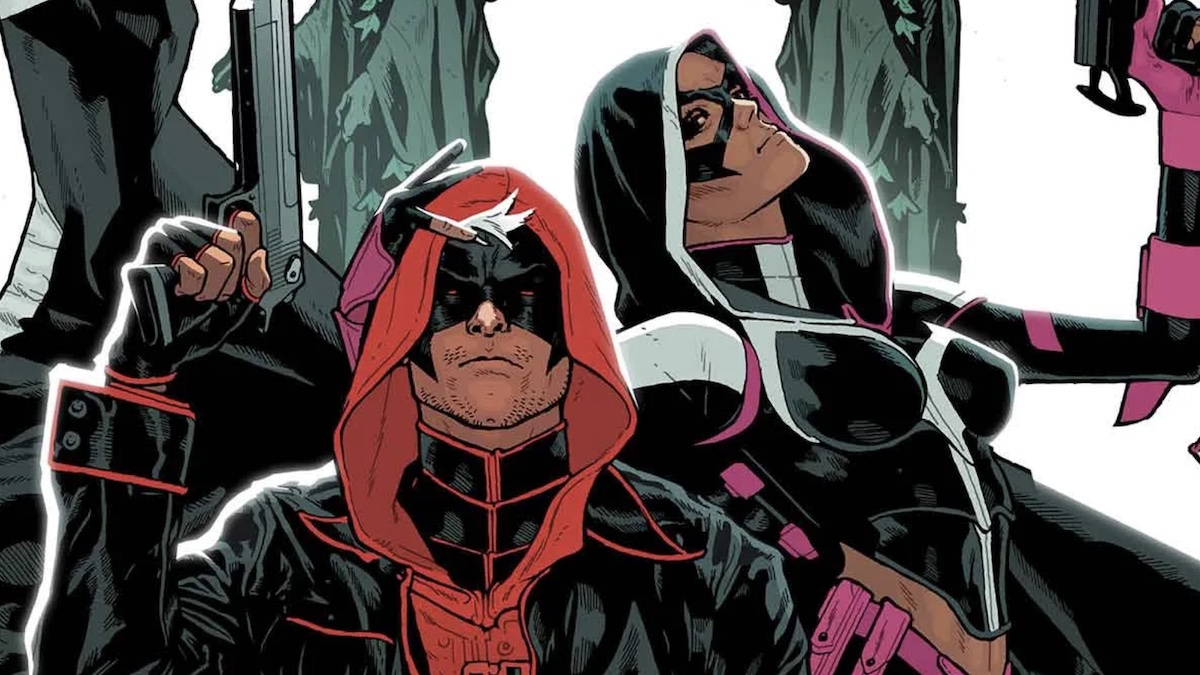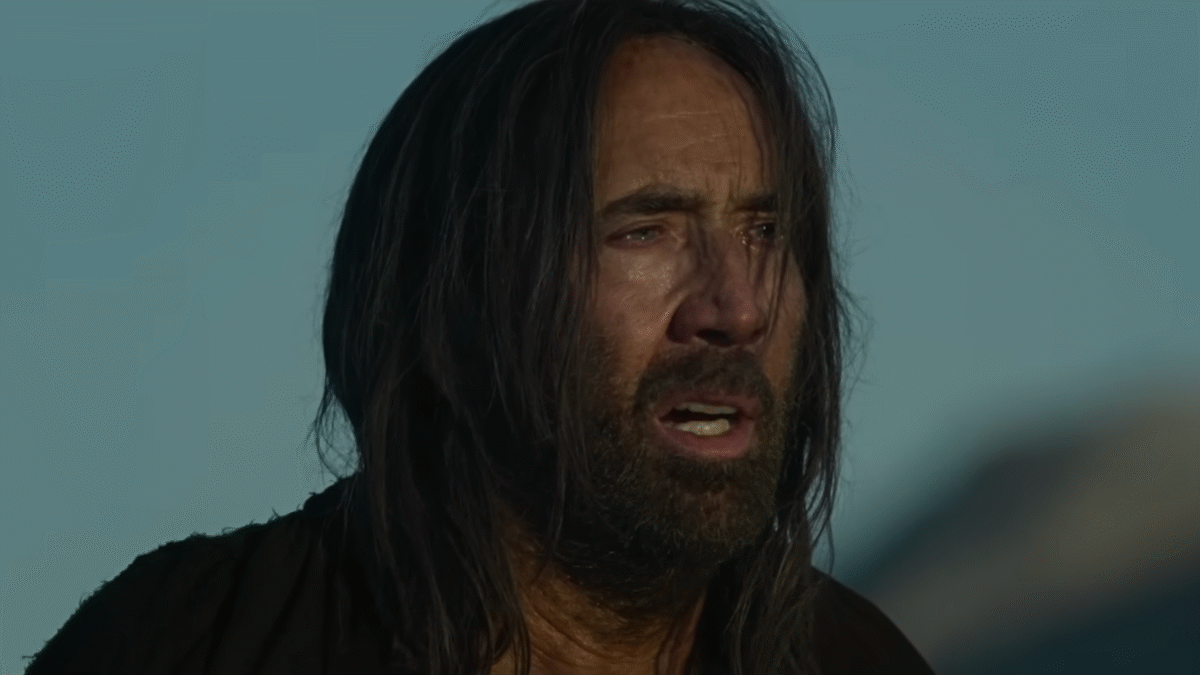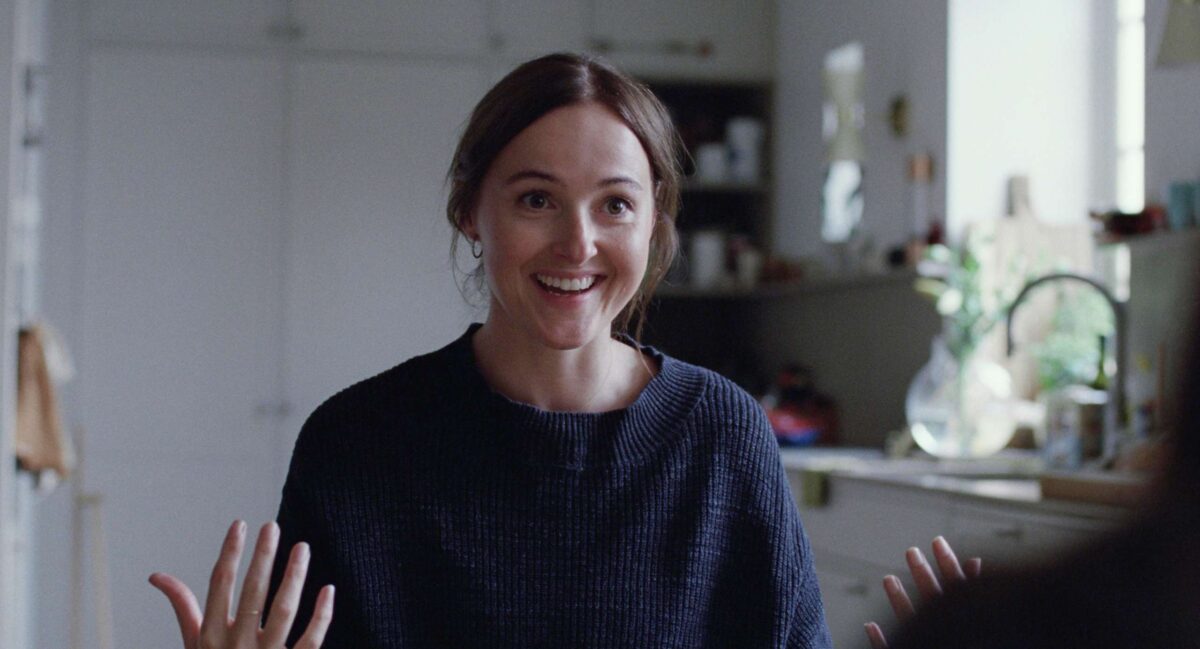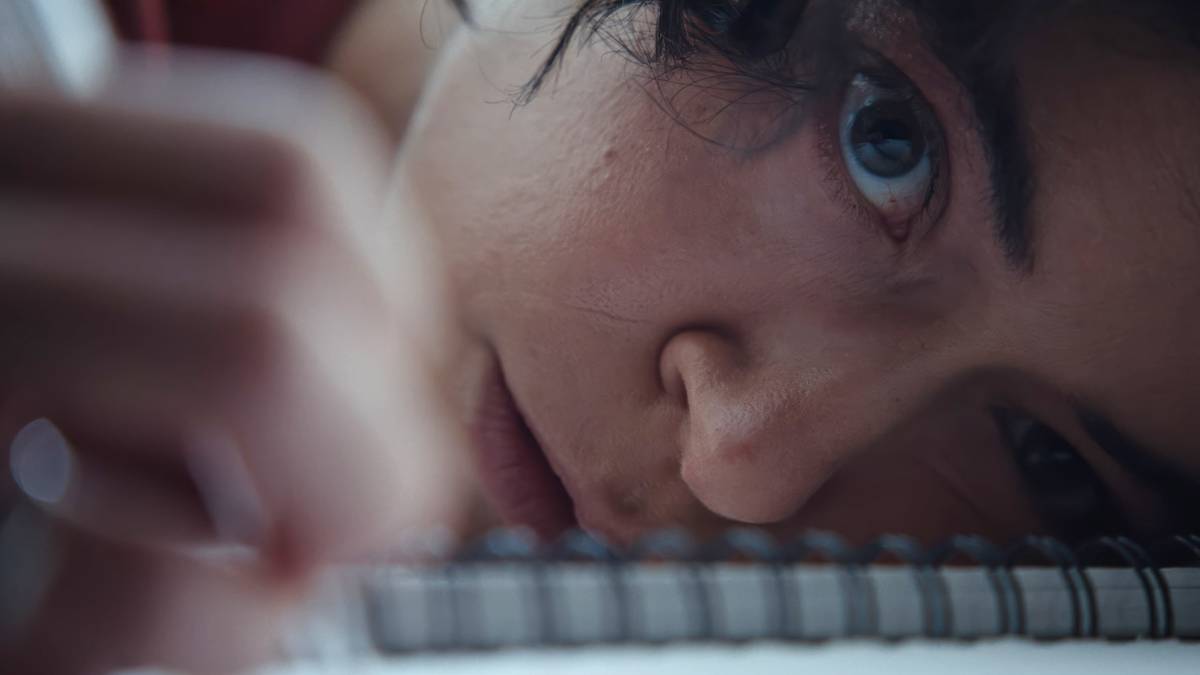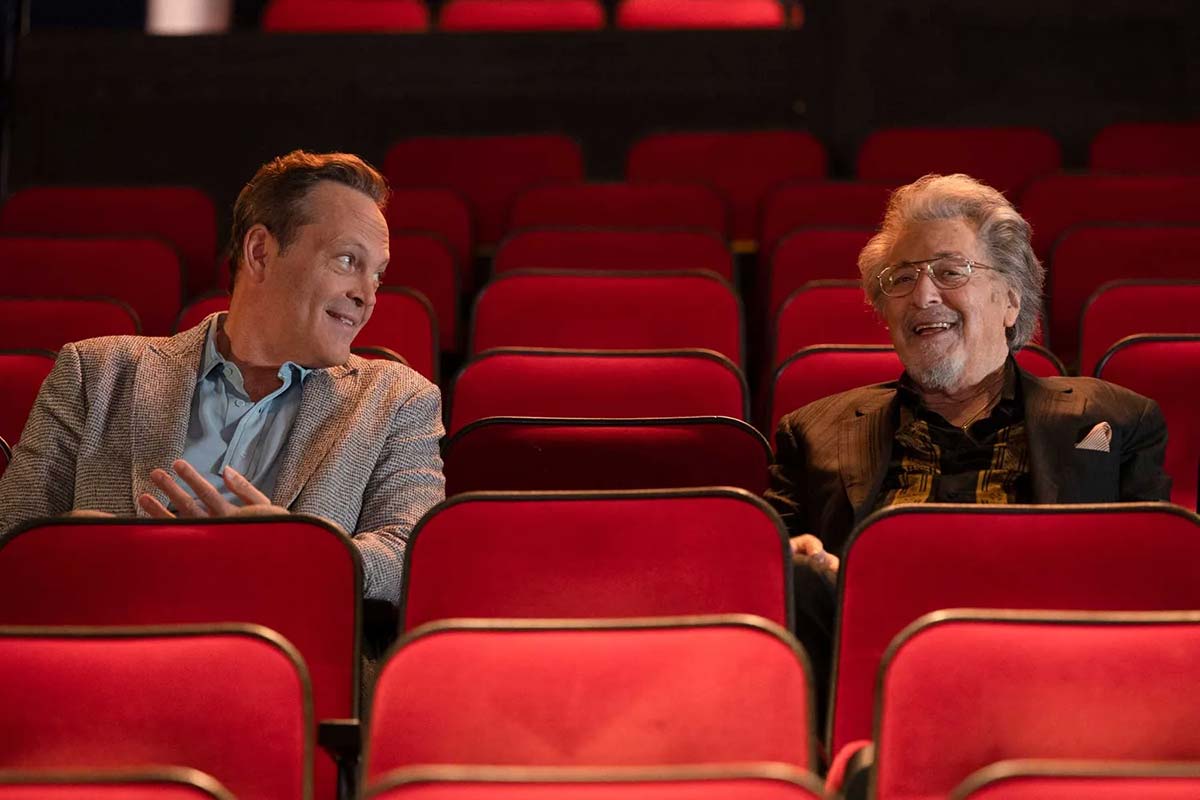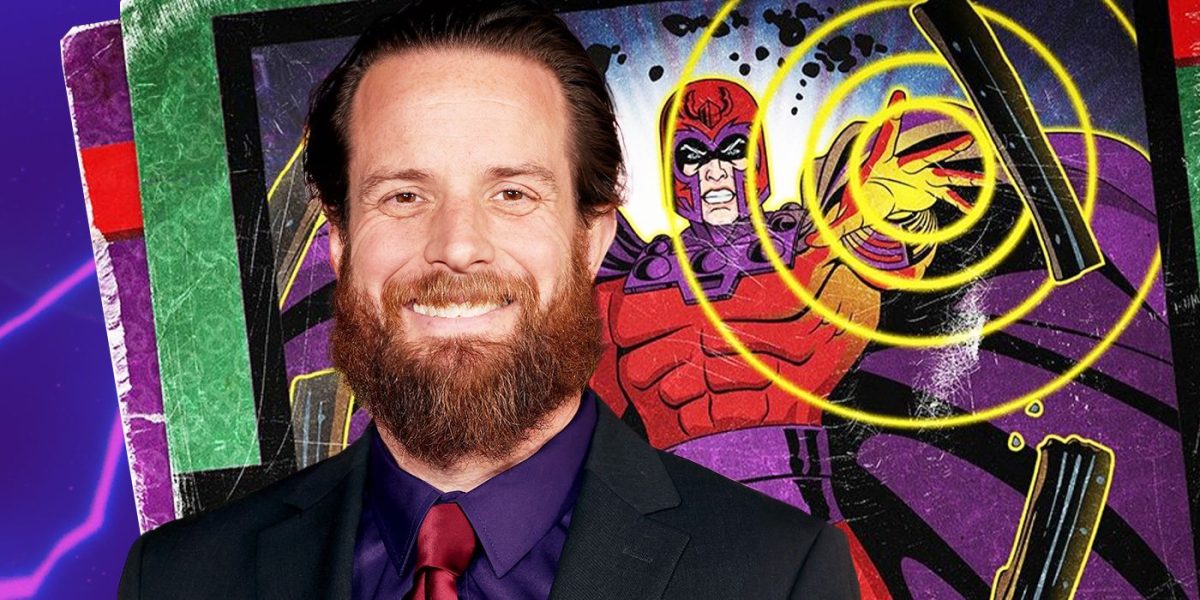
‘X-Men ’97’s Matthew Waterson Wants Magneto to Have More Scenes With This Character in Season 2
May 29, 2024
The Big Picture
X-Men ’97
continues the beloved animated series from the nineties.
Matthew Waterson discusses the character dynamics, memorable scenes, and potential developments for Magneto in Season 2.
He also discusses the online reaction to the Magneto/Rogue/Gambit love triangle.
While the MCU has been a cultural mainstay on big and small screens for the better part of two decades, Marvel Animation went back to Marvel’s roots this year with a nostalgia-filled blast-from-the-past and it paid off. X-Men ’97, the continuation of the beloved X-Men: The Animated Series, proved to be a massive hit for the studio, as fans—both new and old—immersed themselves in the soap opera-style exploits of everyone’s favorite mutants. When you picture Charles Xavier and his X-Men, it’s hard not to also think about their friend and foe, Erik Lehnsherr, better known as his alter ego Magneto. Magneto may have played a smaller role in The Animated Series than he has in other iterations of the story, but the first season of X-Men ’97 made up for all of that lacking screen-time with a phenomenally well-crafted storyline for the character, voiced by Matthew Waterson.
I caught up with Waterson shortly after the Season 1 finale to unpack some of the major plot lines, moments, playing a character that is fundamentally right, and where things might be headed for Magneto. After speaking with Brad Winderbaum earlier this month about how it was a “goal” of the creative team to explore the romantic relationship between Rogue and Magneto in X-Men ’97, I couldn’t help but ask about what those conversations were like in the early phases of the project. Waterson shared quite a bit about his initial reaction to the relationship, especially as someone who wasn’t as familiar with the comics, and he spoke quite eloquently about why the dynamic works, given their similar tragic backstories. Naturally, with Waterson’s friendship with A. J. LoCascio, who voices Remy LeBeau in the series, there was quite a lot of humorous commentary about fan reactions to the love triangle, and how they’ve been stoking the flames of those reactions with their epic meme game.
In addition to discussing the Rogue and Magneto of it all, Waterson also shared some interesting insight into earlier versions of scenes from Episode 2 and the season finale, including line changes and cut backstory elements from the scene between Erik and Charles in the flooding bar. He also teased where things might go in Season 2, while discussing some of the dynamics and plotpoints he would like to see explored more. Keep reading for the full interview transcript or watch our 30-minute conversation in the player above.
X-Men ’97 A band of mutants use their uncanny gifts to protect a world that hates and fears them; they’re challenged like never before, forced to face a dangerous and unexpected new future.Release Date March 20, 2024 Cast Jennifer Hale , Cal Dodd , Chris Potter , Catherine Disher , Adrian Hough , Ray Chase , Lenore Zann Seasons 1 Number of Episodes 10 Streaming Service(s) Disney+ Expand
Matthew Waterson Says Playing a Bad Guy Is “Fun,” But It’s Different With Magneto
COLLIDER: I know in the documentary you talked a little bit about kind of getting into X-Men, but before getting your role in X-Men ‘97, what was your relationship like with the X-Men universe?
MATTHEW WATERSON: I had some familiarity with it, but most of my cohesive understanding of the characters, the story, the world, had actually come from the feature films, because when the animated series was being released, I was in boarding school in England, so I was locked in a Victorian children’s prison, effectively, and it was not really conducive to Saturday morning cartoons. Also, we had school on Saturday, so I was in school when it was happening. So, I didn’t watch it when it was coming out, and so, in the early 2000s, when the films came out, that was my first mainstream, sort of cohesive introduction to it. And then after that, I started to become a little more familiar and aware of all of the canon and all of the comic books, because some kids at school had had the comics, but it was here and there, so there was never like, “Oh, this is from this run.” It would be like, people had random ones. So, nothing made complete sense. You’d have an individual comic book of whatever they are, 25 pages, that was part of a bigger story, and no context, and then the next one that somebody had would be from a different author, from a different era, with a different team makeup, and people had gone from one side to the other, and it was very tough to follow what was going on.
Looking back, I’m like, “Yeah, going to any long comic series over history that’s had multiple eras, multiple writers, multiple artists, and inkists, trying to pick random ones out, and then trying to get anything cohesive about the characters is a nightmare.” So, that was kind of where my basis had been until the movies came out. So, they’re the first ones that gave me a holistic concept of what the world was. Then, after that, I sort of got to know bits and pieces of it more, usually when a character would show up in something or other that was then a character that everybody liked, or a character that showed up because people had liked it. Then you go, “Oh, wait, who’s this one? I haven’t seen this one before.” Obviously, I didn’t have much exposure to Gambit from the movies because-
He’s not there.
WATERSON: He’s not there until the one Wolverine movie that still never really quite landed. And so, all of my knowledge of Gambit then came from having to go back and actually look up the character and learn about it. Then, all of that was completely destroyed when A.J. LoCascio destroyed the character in his recent thing, and I’ll never forgive him for that. If only he had known anything about the character before getting into it.
I know, gosh, it’s not like he went by Remy, or something, in French class.
WATERSON: No, it’s not like he’s been obsessed with him since he was eight. If he’d started at four, then maybe we would be getting somewhere. But unfortunately… So, a lot of the characters, and a lot of the characters in our show, I was aware of because of hearing about them or seeing them in something, whether it was a comic book, or somebody telling me about them, and then going and researching them before getting the show. And then once I got the show, they gave me a list from the original series, of all of Erik’s episodes, and they said, “Start with this, because it’s five seasons, so that’s a lot for us to ask you to try and cram in short order.” So, I started with those and then went back and just watched the whole thing through once I watched the Erik episodes, so I at least had that basis.
It’s been really fun to go back and revisit The Animated Series and see just how the threads are all there. It comes through so perfectly into X-Men ’97. Magneto has always been one of my favorite characters, because he’s essentially an anti-hero that everybody wants to assume is a villain, and I’m curious for you, what has it been getting to play that kind of character, who is fundamentally right, but everybody paints him as a villain? It’s a very nuanced type of role.
WATERSON: Playing bad guys is always fun, but playing bad guys who are right is a blast. The fascinating thing about him and about why he and Charles’ relationship and interaction is able to sustain effectively this entire world, is because they’re both good guys, they’re both trying to do the right thing, and they’re both trying to protect people who need somebody to protect them. Erik is somebody whose end game is not him being rich, it’s not him being powerful or running the world, or having control, or anything like that. It comes and goes a little bit depending on what’s happening, but it’s usually not even revenge. It’s just, “If you’ll leave my people alone, we’re fine.” He’s the most pure comic book example of, “If you don’t start nothing, there won’t be nothing,” kind of thing. He’s a case of, “I’m just trying to protect the people like me who don’t happen to be able to blend in the way I can or don’t happen to have the amount of power that I have, that effectively makes me not at risk.” And so, getting to play a character that can be so 100% committed to what he’s saying and what he’s doing because he knows absolutely that he is correct, it is wonderful, because also, it makes it easy. It makes it very, very simple to not have to wonder about everything that he says.
Like any human being, there are things that he is unsure about, and sure, coming into this season, deciding to try and take up Charles’ mantle, and attempt coming at human-mutant relations from the opposite side, there’s a lot of him going, “Okay, this is not what I’m used to. I’m having to find my way here.” But what he’s trying to do hasn’t changed, and that helps to make it easier. It’s not like his end game has changed. He’s just saying, “Okay, we’ll try this method.” But there’s the benefit of not only his instinct but his entire life experience, which tells him, “My way is the right way.”
Matthew Waterson Reveals His Most Memorable Magneto Scenes
He really got so many fantastic scenes in Season 1. You have the speech with the UN, you have his sacrifice, you have the entire three final episodes of the season. For you, when you were in the recording booth, or maybe after you actually got to see the episodes, were there any particular moments of his that really stood out to you?
WATERSON: Absolutely. And as you said, it’s an embarrassment of riches. I was really lucky in this season that so much was written for Magneto, and of so much of the big arc and transitions that are happening for characters, his is so front and center for a lot of the time. As a result, there’s a bunch of stuff that I absolutely loved, but the two or the three that always stick with me for different, but hopefully, obvious reasons, are the end of the UN speech, which, to me, is always going to be one of the coldest threats I’ve ever heard, the, “I am trying to be better, please do not make me let you down.” It is such a cold threat to deliver. Especially right then and right there, when he has lifted tons of earth and buildings and human beings almost to the edge of the ozone layer, and is just going like, “This is where we are. I’m not even paying attention and look what I’m doing,” kind of thing. That whole speech, but especially the crescendo of that, was just a blast, and it was so much fun to do.
The scene that was the most difficult to do, and the most moving for me, was the scene in Episode 5 when he’s protecting Leech, right before the Sentinel destroys them, when he switches back to German, I think subconsciously. I don’t think that is a choice that he consciously makes, that he switches back to German to tell Leech not to be afraid. That was a scene that, even reading it on the page, and doing it in the booth, it was interesting acting-wise because it was affecting enough that I actually had to, in my head, recognize that, and pull back a little, so that I was able to deliver the line in a way that worked — what I thought and what our director Meredith Layne was asking for — that was going to be the best to convey everything that was happening to the viewers, as opposed to just like, “Oh, this is affecting me, so it means that it does X, Y, or Z to my voice.” I’m like, “That doesn’t help if what it’s doing to my voice is making it full out of character, or become difficult to hear, and so I don’t get to convey that moment successfully to the audience.” It’s that weird thing of you’re told, “Well, you need to get into a thing so that you feel it.” It’s like, “Right, but in the end, it’s not about you feeling it, it’s about you successfully telling the story for the viewers.”
But that moment, with everything that built up to it, from stepping in with Remy and Rogue to try and defend the entire city, to then seeing them about to come and try and help, and strapping them to a pole, and going like, “I know, but no. You guys stay together. You guys need to be together. I can do this. It’s not going to help if all of us die,” kind of thing. So, that moment I really, really love. And like I said, the switching into German, which I think was subconscious, which I think was him jumping back to what one of his parents, or somebody, had said to him in that moment when he was unable. And obviously, at that time, the assumption was that all of them were going to perish, and he didn’t because it turns out he is who he is. But I think there was the knowledge of, up until the moment when it became apparent that because it turned out more powerful, that he wasn’t going to die with the rest of them, that was a bomb to him, that was calming to him, and so it made sense to him to try and do that for Leech.
Then, in the last couple of episodes with Charles, that conversation in his head, but in the bar. There’s a moment in there, and when we were recording it, we did a bunch of different iterations of it, and there’s a line that actually ended up being one that Charles says, but in one iteration was one that Erik said. That moment was really, really important to me, which is the one when, as it shows up on the show, when Charles says something along the lines of, “There’s something vital about being able to see yourself in other people.” It is much more succinctly and eloquently written in the show, and I don’t remember the exact one, and who said that line went back and forth, but in the final iteration, and I think it’s the right way to do it, Charles is saying to him, “There’s something that’s really important about being able to look around a room of people, and seeing people who you identify with.” And in one of the early versions of that scene, Erik is telling a story about going, I think, with a girlfriend back to her family’s for a holiday, and looking around and seeing all of her family members around the table, and saying, “Visually, you look like these people,” and realizing that there’s nobody on the planet that looks like him because his entire family was killed, and him going, “There’s something about that, and not having that, that is really, really difficult.” There was a lot bigger version of the scene or different parts of the scene that didn’t end up being in there, which I think didn’t need to be in there. But having Charles in this iteration say that to him, I think, is really, really important because, again, it’s showing that Charles sees that in him, and Charles understands that in him. Having somebody in that moment make that observation to Erik was really, really important.
It was what he needed in that moment. That’s such a beautiful moment too. That whole conversation there brought me to my next question, which is, I know that in animation it’s a lot tighter than in live-action, so you don’t really get these deleted scenes, but you do get different takes and different approaches to the scenes like you were describing there? Were there other moments that you recorded for Season 1 that changed a little bit from how they originally presented to what they were in the recording booth and then what they ultimately became?
WATERSON: Oh yeah. The UN speech. We probably went back and re-recorded bits of that ranging from entire sections or lines, down to sometimes just a word — taking a word out, putting a word in, changing a word — I would say probably half a dozen times between the initial episode record and when we were finally done. It got bigger, it got smaller, it changed around, but that was one where they were constantly changing, especially as they were starting to see it and starting to get the visuals for it and figure out how it was actually going to happen, and the cutaways. They ended up being able to pull a lot of stuff out of it because they could show it as opposed to Magneto saying it. But we were working on that constantly. The final version of it, I think, hands down, is the best version of it. I think that they did an amazing job in finding exactly what it was that they were trying to do with that scene.
But yeah, there were so many bits of that that we did. And then, like I said, in the last three episodes, that whole conversation between Erik and Charles we did a whole bunch of times, and there was a huge amount more of it. It was a case of do everything and then start to piece it together, and then go, “Okay, this is now how it’s starting to form together. We might need to swap this line or adjust this a little bit to make it blend more smoothly.” There were a couple of things throughout… Erik obviously talks a lot in the show, he is one of the more verbose characters, and so there was a good amount of stuff where we would go back and hone things in because he would have a section where he would cover a lot of ground, and then it would be a case of, “Great, we can do that cleaner.” So, the writers were exceptional about writing exactly the right thing, and then looking at it and going, “Okay, we can cut some of that out. Some of the stuff that we did, we’ve actually covered already, so we can get to it.”
Why Does Rogue and Magneto’s Connection to Each Other Make Sense?
I’m actually curious to hear your take on that scene because something I thought was really interesting was he doesn’t necessarily remember who he is. He doesn’t necessarily remember who Xavier is for parts of that scene, but then he does remember Rogue. He sees her on the boat, she’s more visible than even his kids on the boat. I’m curious, what do you think it is about Rogue that stands out so much to Erik?
WATERSON: To me, the attraction of Erik for Rogue makes sense to me, for the fact that they can actually touch and that he, as a result, is able to treat her a normal person. But I think it goes back to what I was talking about a little ago, in that he sees in Rogue somebody who has spent, from about the same time in her life, all of basically her late childhood through adulthood effectively alone. That’s the way he felt ever since he lost his entire family, and he sees in her somebody who went through the same thing. Obviously, the context of hers is different. Hers was her powers that made her separate from everyone else, as opposed to his situation, but I think that there was something in that that is really familiar to him, and so there’s something in her pain and her struggles that feels very, very familiar, and that makes him think, “Oh, she’s going to understand me more, and I understand her more. Maybe I can help where I didn’t have somebody, and maybe she can help me because she understands some of what the last 50 years of my life have been.”
I really like that dynamic a lot. It was one of the things that surprised me the most because I loved it in the comics and I never thought I would ever see Rogue and Erik’s relationship play out on screen. Obviously, if you look at the movies, that was not going to happen. But I talked to Brad Winderbaum a few weeks ago, and he talked about how they had talked to the creative team from the original show and the directors of that when they were shaping where that relationship was going to go. To paraphrase, he was like, “Every single person knew that this was the goal that we were headed towards with these two characters.” I’m curious for you, what was that conversation like? Because obviously, if your base of understanding was the X-Men movies from the aughts it was a very different situation than what was going on in the comics. So, I was curious, for you, what was your reaction to that relationship, and how it was presented to you?
WATERSON: So, my initial reaction was similar to a handful of scenes in the first season, which was that when I first saw it, I looked at it, and I just went, “Oh, this is going to make a lot of people mad.” And that was my reaction to a lot of Episode 5. That was my reaction to the Wolverine-Magneto fight at the end. I was just like, “This is going to make a lot of people mad.” The response, whenever I said that from the team, was, “Uh-huh.” So, it was not a relationship that I was familiar with. I was not up-to-date on that section of the comics, and that section of the canon, but it was presented as, “Well, as everything in our show, none of this is fabricated out of thin air. All of this is made up from parts of stories or eras that are well-established,” and most of them were also very popular ones.
So, this is something that has been there, but obviously, the Remy-Rogue relationship has always been one of the front-and-center relationships. So, it was presented as this is important because the entire dynamic of the team is shifting. So, the fact that Erik is coming in to take over, Charles is gone, Magneto is now officially a good guy, not like, “Well, he’s a bad guy, but sometimes he helps us out, or we fight for the same thing.” It’s, “No, he’s now in charge, and he’s stepping into Charles’s place.” The dynamic in the entire team has shifted, so it makes sense that it does uproot some of the existing dynamics, and this is one that actually logically makes sense, the Remy-Rogue relationship, it makes sense to cause the biggest friction in this one because there is the history there. So, it was a case of, this may feel kind of out of left field if you didn’t know about it, but the reality is it’s been there before, and if you actually look back, again, it starts to make sense why because he was able to say to her, “I can help, because you’re dealing with all of this insanity, and I actually come from a place where I can help you.” So, it was presented very much as part and parcel of the entire mix-up, or the entire sort of shake-up that was going on with the team, because of Charles being gone and Erik taking over.
How has it been for you to be in the middle of this love triangle, shipping discourse online? I don’t know if the characters you’ve voiced in the past have ever had that online reaction, from shippers specifically.
WATERSON: No, strangely enough, there was not a strong shipping faction based on my work in The Croods. Everybody was comfortable with who was with who in that one. It’s actually been a blast, and the thing that’s been really fun has been, going into the show being released and even the whole time working through it, you’re working on it going, “We like what we’re doing. We hope people like it when it gets released.” And so, my experience of having voiced characters that I knew were going to come with some built-in baggage, for want of a better word, of things like Doomslayer, was you hope that best case scenario, a third of the people like what you do, a third of the people are like, “Eh, it’s fine,” and only a third of the people are screaming, “You’ve destroyed my childhood, and I will forever hate, loathe, and attempt to destroy you!” So, that’s a best-case scenario.
That was the situation coming into this one for me. In my head, I was just thinking, “If a third of the people like me, and a third of the people are indifferent to me, that’s pretty good.” As it’s actually turned out, the majority of any vitriol I’ve had has been over the character’s actions, not the making of the show. And so, for me, that’s great. If people are upset about the choices that characters are making, then that means that we’ve done great because, A, they’re invested, and B, they’re saying, “No, we’re invested enough, and we buy what you’re doing enough that this upsets us.” The frustrations and the back-and-forths over this particular love triangle have actually been a blast. The nice thing about it is that A.J., who plays Remy, is one of my very close friends even before this show, so he’s somebody who, we have a lot of fun trolling each other.
The memes are great. They’re fantastic.
WATERSON: Yeah, and Lenore [Zann] is such a sweetheart, and is so lovely, and is so approachable, and caring, and loving, and also loves her character, and is completely 100% into this. So, the nice thing has been that the three of us, and specifically A.J. and I and Lenore, have been very good about playing coy back and forth while sticking with a, “No, Remy is the person who she’s in her heart and soul closest to.” But the Erik thing also does make sense, and there’s some value there. But it’s allowed A.J. and I to, probably not maybe the nicest thing, but we both definitely fan the flames of people, and are like, “Bring it! Go on. Keep going. We’re here for it.” And we will continue to promote and direct any attention we can towards it because it’s hysterical.
Where Could Things Head for Magneto in ‘X-Men 97’ Season 2?
It is! And honestly, shipping gets so many people engaged and talking about a show in a way that sometimes other dynamics and stuff don’t necessarily get. So, it’s been a blast to see how fans have reacted to that. As we wind down, I know you’ve already filmed or recorded Season 2, so you can’t really talk too much about that, but I do want to talk about the final episode, and specifically that final scene that we get with them. They’re stuck in Egypt, they’ve got a young Apocalypse, and Erik and Rogue look at each other. What is going through Erik’s mind in that moment?
WATERSON: That whole setup of, “We just managed to avert this complete world-ending global catastrophe, and then all of a sudden, we find ourselves launched back a few thousand years into the past?” It’s like, “Okay, well, we’re in another fight, but this is pretty easy. Rogue and Nightcrawler are able to joke and mess around because they’re like, “This is not a difficult fight,” and then, realizing what the situation is, and realizing when they get to En Sabah Nur, and get his name, and the recognition of, “Oh, this is a 19-year-old, or whatever he’s supposed to be, Apocalypse,” I think that, at that point, probably for all of them, but also especially for Erik and Rogue, it’s just a case of complete shock, and it’s also like, “Where are we now? Not in terms of necessarily time or geography, but all of our relationships. Where are we?”
Obviously, one of the last things that happened was that Erik said to the team, “You guys have to choose.” And Rogue and Sunspot came with him. Well, Sunspot’s not there, so it’s a case of yeah, okay, there was the reconnection with Charles, but also that reconnection happened while they were fighting. Whereas Rogue and Erik were on the same side because they got to the point of going, “We have both got to the point where we see our world views might have actually aligned, also in how to handle human-mutant interactions, and so now we potentially are back where it all began at the start of this.” So, I think for Erik, there was a little bit of, “Are you still on my team? Obviously, the team has changed a little bit, but when push comes to shove, are you still backing my point of view, or what’s going on?” That’s a big thing. It’s like, “Oh, look, 12-year-old Stalin. Okay. How might we be able to change things for the better?”
Yeah. It’s like, “Are we going to kill him? Are we going to try to make him good? What are we doing here?”
WATERSON: Yeah, you get to the thing at the end of the one Deadpool movie where he jumps back, and it’s the baby Hitler, and he’s like, “I thought this would be easy,” and he has the whole very funny monologue to himself, going, “Oh, this is way harder than I thought it was going to be.”
Yes. I’m very excited to see where that might go in Season 2. What can you tease about Season 2? For Magneto fans, we’ve gotten so much this season, will there still be as much in Season 2? Will we still be as satisfied with our Magneto?
WATERSON: I think so, because by sending everybody to different corners of the world and time in the universe, what we’ve got now is different makeups. So the teams are made up differently. There was almost no Erik and Charles interaction in Season 1, and obviously, they’re back together now, and so there’s all of the stuff that we didn’t get to get into in the first season we now have at our disposal. So, there’s all of that. Plus, obviously, as Rogue is there, who he also has a connection with, and there is no longer a triangle, there is a lot of room for future. One of the things, and this is not a spoiler, or a leak, or anything, but this is something that I’ve always just observed, is I’ve always actually really enjoyed any interactions between Magneto and Nightcrawler.
Yes!
WATERSON: Because they have a shared cultural background, and they both operate very much from a position of core belief. And so, I’ve always found those two characters, there’s always been a part of me, even in the live-action movies, but in everything, where I’ve always enjoyed any interactions those two characters have. And so them, and then Beast is always just fun because he’s like everybody’s uncle.
I know. Hank is great, I love Hank so much, but I’m glad you mentioned Nightcrawler because I am very hopeful that we see more of those interactions in Season 2. I like that he kept bringing up Erik to Rogue when they were thinking that Magneto was dead and having that obvious connection that they do have this shared culture. I’m hopeful to see what could come from that.
WATERSON: That’s the thing, that was always something, even when it was not specifically focused on in the live-action movies or in earlier seasons or in the old show, it was always something that was just interesting to me. The potential for that dynamic was always interesting to me.
The first season of X-Men ’97 is streaming now on Disney+. Stayed tuned to Collider for more updates as we approach Season 2.
Watch on Disney+
Publisher: Source link
Nicolas Cage Distracts In An Underwhelming Biblical Horror Despite A Solid Effort From Noah Jupe
Lotfy Nathan's Roman-era horror The Carpenter's Son is borne from a conflagration of Biblical texts, which all somehow converge to create something far more convoluted than its itinerant parts. The main text in question is The Infancy Gospel of Thomas,…
Nov 19, 2025
Sentimental Value Review: A Tender, Turbulent Masterwork
Joachim Trier’s Sentimental Value might be his most emotionally layered, morally thorny, and formally assured film to date, a culmination of the themes that have pulsed through his Oslo trilogy and his collaborations with co-writer Eskil Vogt. Here, he crafts…
Nov 19, 2025
Tatiana Maslany and Osgood Perkins Elevate an Underwhelming Horror Tale
The last year has truly been an impressive one for writer-director Osgood Perkins, who, after films like 2015’s The Blackcoat’s Daughter and 2020’s Gretel & Hansel, really became a horror director to watch with 2024’s Longlegs. The film was a…
Nov 17, 2025
Vince Vaughn Shines Through Nic Pizzolatto’s World-Weary Vegas Drama [TIFF]
TORONTO – Written and directed by Nic Pizzolatto, the creator of HBO’s crime series “True Detective,” “Easy’s Waltz” is a show business showdown between those who have ambition and those who hold power. The film’s leading star, Vince Vaughn, takes…
Nov 17, 2025
